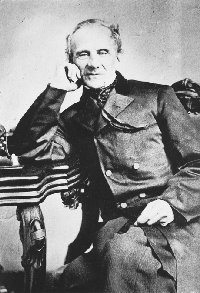 W
WThomas Beamish Akins was a Canadian lawyer, historian, archivist, and author who was appointed Nova Scotia's first Commissioner of Public Records from 1857 until his death in 1891. He was designated a Person of National Historic Significance by the Government of Canada.
 W
WGuillaume Amyot was a Canadian politician, editor and lawyer. He was a Member of the House of Commons of Canada for the riding of Bellechasse, Quebec representing the historical Conservative Party. He later switched affiliation to Nationalist and was re-elected in the 1887 election then re-elected as a Nationalist Conservative in the election of 1891.
 W
WWilliam Annand was a Nova Scotia publisher and politician. He was a member of the North British Society.
 W
WPhilippe-Joseph Aubert de Gaspé was a French Canadian writer and seigneur.
 W
WNapoléon Aubin, christened Aimé-Nicolas, was born from a Swiss family in Chêne-Bougeries, a district of Geneva, at the time a territory of France. He was a journalist, writer, publisher, scientist, musician and lithographer.
 W
WHector Berthelot was a Canadian lawyer, journalist, columnist, satirist, caricaturist, photographer and publisher who was born in Trois-Rivières. He was not married and died in Montreal. He is most well known for founding various satirical magazines, of which Le Canard was the most famous.
 W
WMichel Bibaud was a Canadian writer and educator in Montreal, Quebec.
 W
WJosiah Blackburn was a London born and educated journalist who emigrated to Canada West in 1850.
 W
WWilliam Rufus Blake was a Canadian stage actor.
 W
WThomas Storrow Brown was a journalist, writer, orator, and revolutionary in Lower Canada.
 W
WGilbert Buote was an Acadian educator, publisher and author.
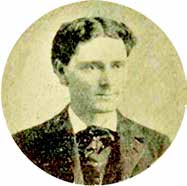 W
WArthur de Bussières was a Canadian poet from Montreal, Quebec.
 W
WWilliam Wilfred Campbell was a Canadian poet. He is often classed as one of the country's Confederation Poets, a group that included fellow Canadians Charles G.D. Roberts, Bliss Carman, Archibald Lampman, and Duncan Campbell Scott; he was a colleague of Lampman and Scott. By the end of the 19th century, he was considered the "unofficial poet laureate of Canada." Although not as well known as the other Confederation poets today, Campbell was a "versatile, interesting writer" who was influenced by Robert Burns, the English Romantics, Edgar Allan Poe, Ralph Waldo Emerson, Henry Wadsworth Longfellow, Thomas Carlyle, and Alfred Tennyson. Inspired by these writers, Campbell expressed his own religious idealism in traditional forms and genres.
 W
WWilliam Bliss Carman was a Canadian poet who lived most of his life in the United States, where he achieved international fame. He was acclaimed as Canada's poet laureate during his later years.
 W
WGeorge William Albert Chapman, né George William Alphred, was a Canadian poet.
 W
WOctave Crémazie was a French Canadian poet and bookseller born in Quebec City. Recognized both during and after his lifetime for his patriotic verse and his significant role in the cultural development of Quebec, Crémazie has been called "the father of French Canadian poetry."
 W
WNicholas Flood Davin was a lawyer, journalist and politician, born at Kilfinane, Ireland. The first MP for Assiniboia West (1887–1900), Davin was known as the voice of the North-West.
 W
WJames De Mille was a professor at Dalhousie University, Nova Scotia, and an early Canadian novelist who published numerous works of popular fiction from the late 1860s through the 1870s.
 W
WAdam-Charles-Gustave Desmazures (1818–1891), also known as Abbé Desmazures, was an author and Catholic priest, active in Montreal, Quebec, Canada.
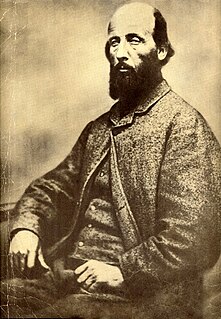 W
WCharles Fenerty, was a Canadian inventor who invented the wood pulp process for papermaking, which was first adapted into the production of newsprint. Fenerty was also a poet.
 W
WJean-Baptiste-Antoine Ferland was a French Canadian historian.
 W
WWilliam Alexander Foster,, was a Canadian barrister and essayist, best remembered as a co-founder of the Canada First movement and for his contributions to liberal nationalism in Canada.
 W
WFrançois-Xavier Garneau was a nineteenth-century French Canadian notary, poet, civil servant and liberal who wrote a three-volume history of the French Canadian nation entitled Histoire du Canada between 1845 and 1848.
 W
WAntoine Gérin-Lajoie was a Québécois Canadian poet and novelist. He was the author of the famous poem Un Canadien errant. He was the father of the sociologist Léon Gérin. His novels include the roman du terroir Jean Rivard, le défricheur (1874), and its sequel, Jean Rivard, économiste (1876).
 W
WRobert Grant Haliburton Q.C., D.C.L. was a Canadian lawyer and anthropologist. He became famous after founding the Canada First organization that saw English Canadian society as the "heirs of Aryan northmen" and that the French Canadians were a "bar to progress."
 W
WCharles Heavysege was a Canadian poet and dramatist. He was one of the earliest poets to publish in Canada. He is known for his critically acclaimed play Saul.
 W
WFrédéric Houde was a Canadian journalist, newspaper editor and political figure in Quebec. He represented Maskinongé in the House of Commons of Canada from 1878 to 1884 as a Nationalist Conservative member.
 W
WGrenville Kleiser (1868–1953) was a North American author. He was the author of a long list of inspirational books and guides to oratorical success and personal development. Kleiser also worked as an instructor in Public Speaking at Yale Divinity School, Yale University.
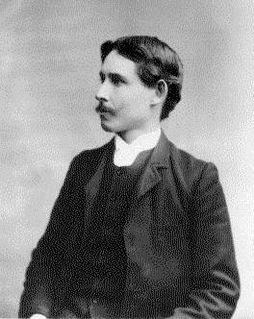 W
WArchibald Lampman was a Canadian poet. "He has been described as 'the Canadian Keats;' and he is perhaps the most outstanding exponent of the Canadian school of nature poets." The Canadian Encyclopedia says that he is "generally considered the finest of Canada's late 19th-century poets in English."
 W
WFrançois Alexandre Hubert LaRue was a French-Canadian writer and physician.
 W
WWilliam Waugh Lauder was a Canadian pianist, music critic, teacher, virtuoso, essayist, and lecturer.
 W
WJames Alexander Macdonald was a Canadian newspaper editor, minister, educator and author.
 W
WCharles Mair was a Canadian poet and journalist. He was a fervent Canadian nationalist noted for his participation in the Canada First movement and his opposition to Louis Riel during the two Riel Rebellions in western Canada.
 W
WJoseph-Étienne-Eugène Marmette was a Canadian novelist and historian.
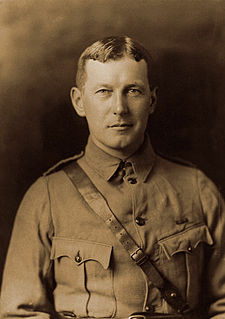 W
WLieutenant Colonel John McCrae, MD was a Canadian poet, physician, author, artist and soldier during World War I, and a surgeon during the Second Battle of Ypres, in Belgium. He is best known for writing the famous war memorial poem "In Flanders Fields". McCrae died of pneumonia near the end of the war.
 W
WHonoré Mercier was a Canadian lawyer, journalist and politician in Quebec. He was the ninth Premier of Quebec from January 27, 1887 to December 21, 1891, as leader of the Parti National or Quebec Liberal Party (PLQ). He rose to power by mobilizing the Francophone opposition to the execution of Louis Riel, denouncing it as a betrayal by John A. Macdonald's Conservative government.
 W
WSir Oliver Mowat, was a Canadian lawyer, politician, and Liberal Party leader. He served for nearly 24 years as the third Premier of Ontario. He was the eighth Lieutenant Governor of Ontario and one of the Fathers of Confederation. He is best known for defending successfully the constitutional rights of the provinces in the face of the centralizing tendency of the national government as represented by his longtime conservative adversary, John A. Macdonald. This longevity and power was due to his political maneuvering, in terms of building a political base around Liberals, Catholics, trade unions, and anti-French-Canadian sentiment.
 W
WÉtienne Parent was a Canadian journalist and government official.
 W
WGeorge Pirie (1799–1870) was a Canadian newspaper publisher.
 W
WJoseph Quesnel was a French Canadian composer, poet, playwright and slave-trader. Among his works were two operas, Colas et Colinette and Lucas et Cécile; the former is considered to be the first Canadian opera.
 W
WCharles Sangster was a Canadian poet. He was the first poet to write poetry which was substantially about Canadian subjects. The Dictionary of Canadian Biography calls him "the best of the pre-confederation poets."
 W
WFrederick George Scott was a Canadian poet and author, known as the Poet of the Laurentians. He is sometimes associated with Canada's Confederation Poets, a group that included Charles G. D. Roberts, Bliss Carman, Archibald Lampman, and Duncan Campbell Scott. Scott published 13 books of Christian and patriotic poetry. Scott was a British imperialist who wrote many hymns to the British Empire—eulogizing his country's roles in the Boer Wars and World War I. Many of his poems use the natural world symbolically to convey deeper spiritual meaning. Frederick George Scott was the father of poet F. R. Scott.
 W
WAlbert Ernest Stafford Smythe was an Irish-born Canadian journalist, poet, and leader in the theosophy movement in Canada who founded the Toronto Theosophical Society. He was the father of sportsman and businessman Conn Smythe, who owned the Toronto Maple Leafs hockey team from 1927 to 1980.
 W
WJoseph Tassé was a Canadian writer, translator, and parliamentarian.
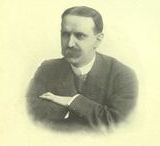 W
WAlbert Durrant Watson was a Canadian poet, and physician.
 W
WJohn Watson (1847–1939) was a Canadian philosopher and academic.
 W
WRobert Stanley Weir was a Montreal, Quebec judge and poet most famous for writing the English lyrics to "O Canada", the national anthem of Canada. He was educated as a teacher and lawyer and considered one of the leading experts of the day on Quebec's municipal civil law. He was appointed a municipal court judge and a judge for the Exchequer Court of Canada.